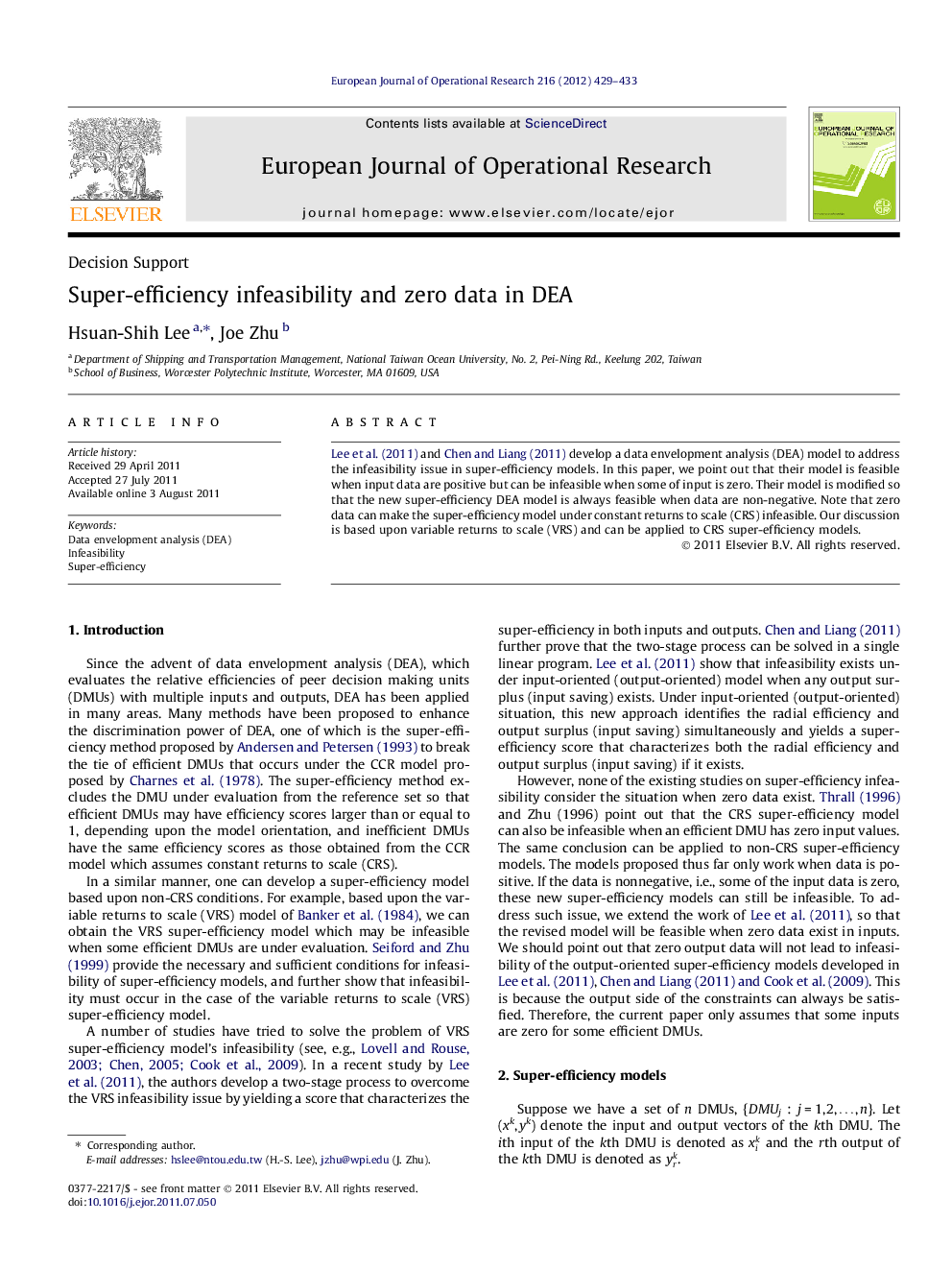| Article ID | Journal | Published Year | Pages | File Type |
|---|---|---|---|---|
| 480181 | European Journal of Operational Research | 2012 | 5 Pages |
Lee et al. (2011) and Chen and Liang (2011) develop a data envelopment analysis (DEA) model to address the infeasibility issue in super-efficiency models. In this paper, we point out that their model is feasible when input data are positive but can be infeasible when some of input is zero. Their model is modified so that the new super-efficiency DEA model is always feasible when data are non-negative. Note that zero data can make the super-efficiency model under constant returns to scale (CRS) infeasible. Our discussion is based upon variable returns to scale (VRS) and can be applied to CRS super-efficiency models.
► We point out that the super efficiency models proposed thus far can be infeasible when some of input is zero. ► We propose a new super-efficiency DEA model which is always feasible when data are non-negative. ► Note that zero data can make the super-efficiency model under constant returns to scale (CRS) infeasible. ► Our discussion is based upon variable returns to scale (VRS) and can be applied to CRS super-efficiency models.
